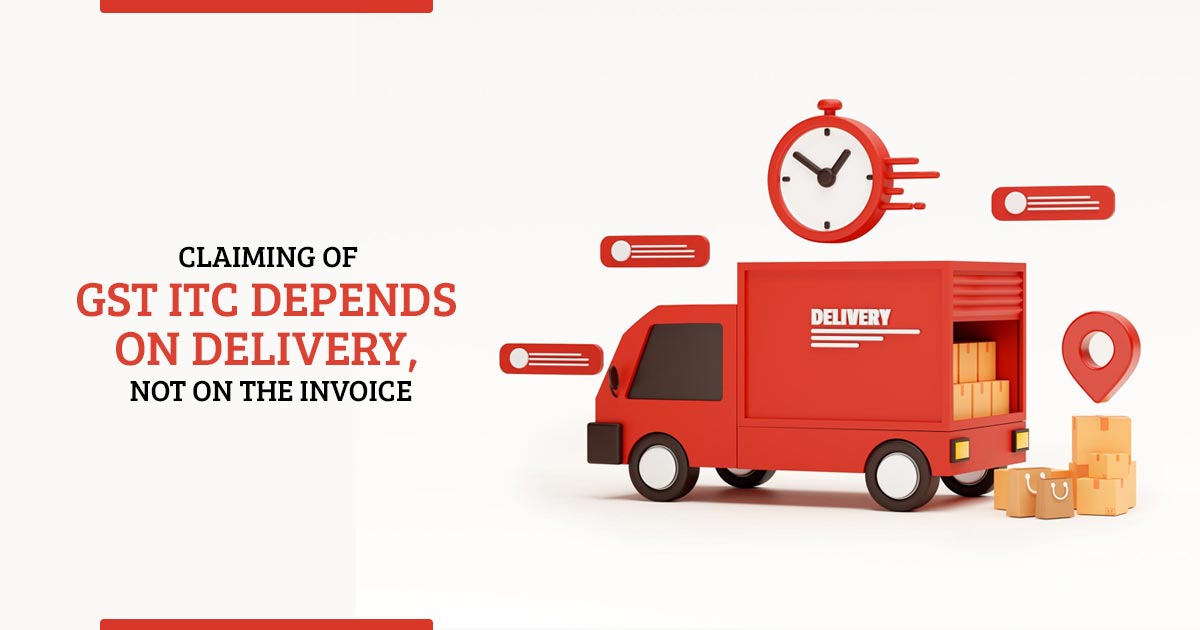
Many businesses at the end of the fiscal year make bulk purchases in March to optimise their GST outflow, though experts caution that the same method can backfire. The input tax credit under the Goods and Services Tax regime is decided from the receipt date of goods or services rather than the payment or invoice date.
Businesses, with the help of the ITC, can offset the GST filed on the purchases (inputs) against the GST collected on the sales (output). For instance, a manufacturer having an output tax obligation of Rs 450 and input taxes of Rs 300 could claim the Rs 300 GST input tax credit (ITC) and file the remaining Rs 150 in cash. Businesses, through the same method, could prevent double taxation and control the cash flows effectively.
A case has been specified where many businesses get incorrect, placing bulk orders at the end of March to lessen the taxable profit. Let us say a business orders a laptop on 31st March and pays Rs 18,000 in GST, but the delivery occurs on 2nd April. Some businesses presume that the ITC could be claimed in March as the payment and invoice date come in the same month. GST law is explicit- the ITC eligibility is founded on the receipt of goods or services.
ITC could merely be claimed by the GST-registered people who fulfil all the norms. The receiver should secure a valid tax invoice, obtain the goods or services, and confirm that the supplier has filed the GST and has submitted the GSTR-1. ITC should get claimed in GSTR-3B with the payment made within 180 days of the invoice.
For instalments, the credit is applicable only after the last lot is obtained. The purchases should be on taxable supplies and business use, and depreciation on the GST of capital disallows ITC. The claims should be in the specified timelines and cannot be made via the composition scheme taxpayers, matching GSTR-2B details.
The conditions to claim the ITC are clear under the GST framework. Businesses should have-
- Actual receipt of goods or services
- Supplier payment of GST and filing of GSTR-1 Form
- A valid invoice
- GSTR-3B filing by the recipient
Without delivery, ITC claiming is not permissible. Although when the e-way bill is dated in March, the credit cannot be booked till the goods are obtained physically.
For businesses, the same distinction is crucial when seeking to lessen their taxable liability at the fiscal year-end. Many end-of-year bulk orders result in ITC being pushed to the subsequent financial year if goods arrive after 31st March. Actual delivery dates should be tracked by the businesses, and they should adjust their accounting as per that.
When there is no immediate claim of the ITC, then the budgeting for the cash outlay should be there. From the business’s funds, temporary GST payments might be required to be made till the credit becomes eligible in the subsequent filing period.
Read Also: Easy Guide to GTA (Goods Transport Agency) Under GST Act
For businesses engaged in job work, Input Tax Credit (ITC) can be claimed on inputs and capital goods that are sent directly to a job worker, if they are not first delivered to the principal place of business. The same provision supports maintaining the continuity of credit within production chains. However, the delivery and receipt of goods remain crucial factors.
ITC could not be automatically permitted if paying GST or getting an invoice in March. When the businesses get the goods or services, then they can claim the credit, shifting the benefit to the next fiscal year if the delivery has been late.
Source: CA Nitin Kaushik